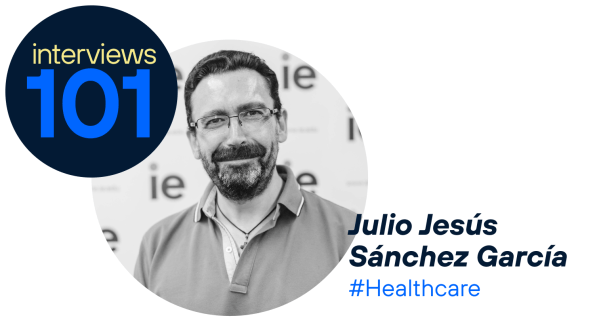What is digital health or eHealth?
We can equate the term digital health or eHealth with the digital transformation of healthcare. Which in turn leads us to having to define both. We can equate digital transformation with the transformation of processes, the user experience, the creation of new services and business models where technology is the main enabler of this transformation, both reactive and catalytic.
On the other hand, we have to understand health here, on the one hand, as the health sector, with all its actors: healthcare providers, health services, insurance companies, pharmaceutical companies, mutual insurance companies … But, on the other hand, we are also talking about well-being.
What are the benefits of digital health?
We mainly talk about three benefits. The first is people’s health. It has been shown that digital health improves healthcare processes and that, when used correctly, it improves the health of patients: more years of life in better health.
The second is the patient experience. Digital health generates more frequent and more streamlined contact between the patient and the healthcare environment. It generates a more humane and accessible healthcare environment.
The third is the sustainability of the system. Healthcare services with digital health are more efficient. We can provide more and better quality service with the same resources.
To what extent do new technologies affect digital health?
As we equate digital health with the digital transformation of healthcare, new technologies are a key element. But it’s not just a question of taking current processes and simply adding technology to them.
It’s about changing the processes, reinventing them from the perspective that technology can make them more efficient. And also more human. A change that has to favour patients, but also healthcare professionals who are the protagonists of change.
Specifically, what new developments can AI bring?
Artificial intelligence is currently having a major impact in the field of healthcare. AI has been around for several decades, but the level of capability it has reached in this decade is qualitatively different from previous ones.
Machine learning has made a name for itself in fields such as disease diagnosis, often exceeding the success rates of healthcare professionals.
And it also has an impact on other areas such as public health, drug discovery, the coding of medical records… And all this before the arrival of large language models, which can transform, for example, the way we interact with healthcare professionals in consultation. Soon they will be the ones entering the consultation data into our electronic medical records.
Can these technological advances present challenges?
Absolutely. The first and most far-reaching has to do with training healthcare professionals in digital technologies. There is a lot to be done in this field. But we must also take into account the ethical and legal fields.
The uses of AI, for example, open up new problems such as liability gaps (who is to blame if an algorithm makes a mistake?) for which the system needs answers before implementing changes.
What skills should healthcare professionals acquire in the face of digital health?
Basic technological knowledge is needed, about the use of information and communication technologies, but, above all, at the user level. The most important thing is to know the transformative power of technology.
Healthcare professionals must be aware of the possibilities that technology offers them, and how digital transformation will improve their day-to-day processes. It is a process that is partly painful and uncomfortable, but the result will be worth it. But healthcare professionals don’t need to learn Python. That’s what the data scientists are there for, and they will work with them side by side in the transformation.
And what about the patients?
Beyond the technological gaps that are inherent to digital transformation, patients should not worry too much, because patients are people, and they are already experiencing digital transformation in other areas of their lives.
Before the health sector becomes the proponent of transformation, it is often the patients who require the healthcare system to have the same degree of digitisation that they experience in other areas.
How does the advancement of digital health help to bridge the digital divide?
With the digital transformation there are some ways to do it right… and many ways to do it wrong. Digital health should create a new generation of digitally native services, made more efficient through the use of technology.
But we can’t leave anyone behind, and the technology itself can provide solutions to include those groups where the digital divide is greatest. AI chatbots helping the elderly or visually impaired are an example of this.











